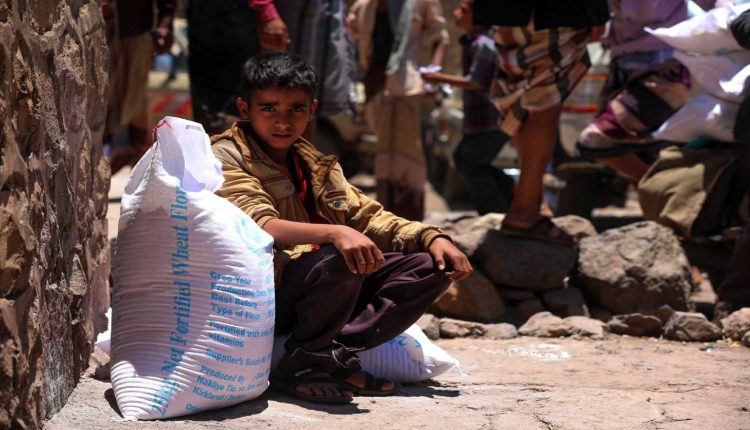$4 Billion Needed to Prevent Enormous Hunger in Yemen: UN
The United Nations will appeal to donors Monday for nearly $4 billion to prevent “the worst famine the world has seen for decades” from happening in Yemen this year.
“The humanitarian situation in Yemen is falling off a cliff,” U.N. humanitarian chief Mark Lowcock told reporters recently. “It’s never been worse; the country is in a state of collapse essentially.”
Lowcock said he is particularly worried because aid agencies have already had to cut rations and critical programs in the war-torn country due to the lack of money raised in 2020.
“Without that funding a lot more people will die and it will be catastrophic for prospects for peace in the country,” he said.
Yemen faced possible famine in late 2018, but donors stepped up and averted a catastrophe. Today, the situation is more widespread: overall 16 million are going hungry, of which 5 million are a step away from famine. Some 50,000 people have already slipped into famine-like conditions.
The U.N. is asking for $3.85 billion to keep death away.
Lowcock says that may sound like a lot, but it’s just a small fraction of the trillions of dollars rich countries have spent on economic stimulus packages due to COVID-19, the disease caused by the coronavirus.
The aid chief has repeatedly made the point that Yemenis are not “going hungry” for lack of food – there is plenty in the country’s markets – but are being starved because after years of war and economic collapse, they can no longer afford it.
“Famines now are a choice by powerful people over powerless people,” Lowcock said. “You only get a famine as a result of active decisions by powerful people, and everybody knows that and nobody wants to be shamed by having made that choice.”
He urged the parties to end the war, saying it’s clear it has not worked.
The secretary-general of the Norwegian Refugee Council, Jan Egeland, is on a visit to Yemen this week. He told VOA by phone Sunday from the northern province of Hajjah, near the Saudi border, that thousands of displaced families have fled from fighting elsewhere to the area and are subsisting “on the bare minimum.” It is one of the provinces that has pockets of people already in a state of famine.
Egeland said many families live in “horrific conditions” in mud and stone huts they have built. They heat what meager food they have – including items found on the local garbage heap – by burning plastic. They were getting by until the U.N. and its partner agencies, like the Norwegian Refugee Council, ran into funding shortfalls last year and most rations were cut in half.
“For many that was the starting point of starvation,” Egeland said.
At the only hospital in Hajjah with a malnutrition ward, Egeland said he spoke with the mother of a nine-year-old girl.
“We saw a child that looked four years old but was nine years old and couldn’t walk because she hadn’t gotten real food for a very long time,” he said.

